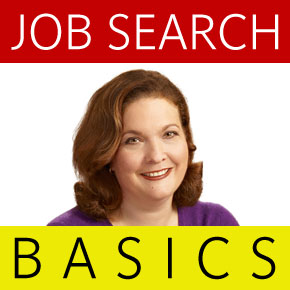The interviewer asks: “What’s your greatest weakness?”
The interviewee thinks: Not that question!
This question makes even the most sophisticated job seeker nervous. Sometimes it breeds contempt, because it seems like a stupid question. I mean, who’s going to admit to having a weakness?
You have to answer the question, though. And fear or contempt are not useful things to show an interviewer.
Let’s reframe the question: Get rid of the word “weakness.” It’s a trigger word for all those latent internal critical voices. Instead, think of the interviewer as wanting to know what you’re good at and what you are not as good at doing. Everybody’s got those things. Perhaps the interviewer simply wants to know what you won’t be bringing to the party, in order to know how to evaluate your candidacy in the context of her/his existing team – a team that has its own strengths and “weaknesses.”
Reframe again: Replace the concept of “weakness” with “self-awareness” or “learning.” When I interviewed people, I wanted to know whether they were aware of their talents and limitations, as well as whether they were open to learning – about themselves, others, the work, processes, interpersonal skills, etc. So I reframe the weakness question in those terms. Here’s an example:
“I’ve learned that my greatest weakness is my desire to say yes to what my boss and colleagues ask of me. Sometimes I have so much on my plate that it’s not realistic for me to take on one more thing. So I’ve learned how to ask questions before saying yes. For example, my boss asked me to take on a project for her boss. Clearly, it was important. So I asked my boss when her boss needed it, and if there were other projects I was working on that could wait so I could do this project. She heard that I knew the project for her boss was a priority, and she also heard that I had competing priorities. Luckily, there were a couple of projects that we agreed could wait a few more days, and I could do the work her boss required. Sometimes all of them are critical and so I simply work more hours, or ask if someone else can help me with one or more project. I’ll bring that ability to communicate about and set priorities to this job, which I think is important because it seems that this job encompasses a lot of high-visibility responsibilities. I’ll want to make sure I’m working on the activities that are the most critical, and I can only do that by talking with my boss – you – regularly. What kind of communication works best for you?”
Here’s another example:
“I’ve learned about myself that I’m very good at initiating projects – thinking through the strategy, getting people on board, leading a team to develop the structures and plan, promoting it, and then handing it off to those who can implement it on an ongoing basis. If I have to, I can certainly manage daily operations but that’s not my sweet spot. I like a beginning, middle and end to a project. That’s why I’m so interested in this position, because it appears to need someone who can create really strong, attractive financial products and then work with the regular sales team and account managers to ensure they completely understand it and market it effectively to their clients. How does product development currently work with sales and account management?”
If you read carefully, you see that the word “weakness” doesn’t appear at all — while that question is answered.
Notice, too, that both answers refer back to the job in question and ask a question of the interviewer. This both engages the interviewer and gets them off the “weakness” question and back to the job in question. That’s where you want most of your interview answers to end up – on the job itself, and getting the interviewer to give you more information about the job.


